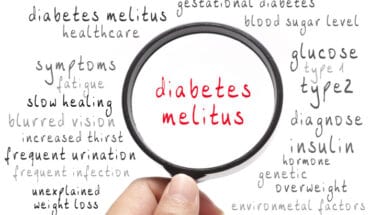With the UK officially in recession, Priory mental health expert talks about job loss and the stages of grief: coping and recovering
- You might experience a number of psychological stages before you start to feel any kind of renewed sense of purpose
- The most important thing you can do to support a loved one is listen
- For the person who has lost their job, it is to express their feelings
Grief is an unpredictable and unavoidable part of life. Priory mental health expert Dr Paul McLaren shares coping strategies when the loss is not a person – but your job.
He spoke as thousands of individuals have experienced job loss – as the UK entered recession for the first time in 11 years.
Official jobs figures showed the number of people in work fell by 220,000 between April and June. The drop in the number of people employed was the largest quarterly decrease since May to July 2009, the depths of the financial crisis. The economy is now growing again but many of the job losses will be irretrievable.
Dr McLaren, a consultant psychiatrist and medical director at the Priory’s Hospital in Hayes Grove, near Bromley in Kent, and the Priory’s Wellbeing Centres in central London, said unemployment can feel devastating.
“Grief is the price we pay for loving someone, or investing our feelings heavily in a job or a business,” he says. “It’s part of the deal. If you gain from being close, or heavily invested in something or someone, then you grieve when that is taken away.”
Grief is a natural emotion
“But grief is not an illness, it is a natural process of psychological adjustment to the loss of a significant part of our lives,” he says. “It is not about forgetting either, or ‘just moving on’. It is about how we come to live with a loss, and build our lives around the hole that is left.”
The stages of grief
“Grief has been most closely studied in patients who know they are terminally ill, or people who have lost a loved one. There are a number of different psychological formulations of the process, but it is important to remember that there is no ‘checklist’ and it is not a linear process. Not everyone goes through every stage with every loss, and there is a lot of overlap.
“That said, the stages can be summarised as;
- Anger and scapegoating: blaming someone, or something, for the loss
- Bargaining
- Despair and depression
- Acceptance
Coping with grief
“The key is expressing it. Mourning is the expression of grief, and we have ‘culturally sanctioned’ mourning rituals which are created to help us with the loss of loved one. But while there are social and cultural processes which help us with the loss of a loved one, it’s different with grief for the loss of a much loved job for example, or a business you have spent a lifetime building.”
Sharing your feelings
“Sharing your feelings is central to grieving,” Dr McLaren says “We need to find different ways of sharing for different losses like a job loss. Let someone you trust know how you feel. It’s okay to say that it’s painful, and that it hurts. It’s okay to feel sad. It’s okay to remember the good times and to appreciate what you have lost. Don’t pretend to yourself or others that it doesn’t matter. Let them know it does.”
Dr McLaren adds: “Watch out for denial. It’s okay to feel pain when something happens that hurts. Don’t try to numb it with drugs or alcohol.”
Supporting a colleague or loved one suffering from grief
“By far and away, the most important thing you can do to support a loved one who has lost their job is to listen to them. Take the time and trouble to understand how they feel about their loss. That allows them to heal. Don’t assume that you know how they feel. Don’t try to cheer them up; walk with them through their dark place.
“Most importantly, help them to feel cared for and valued.”
Helping yourself
Eat well, get outside, exercise, sleep well, spend time with your loved ones, he says. Guided meditation apps like Headspace and Calm can be accessed for free, and can be helpful in reducing some anxiety, sleep troubles, or stress that you might be feeling. Keep a regular routine. Dr McLaren adds: “People need rhythm and pattern in their lives. Some of us need more pattern than others. We can feel stress when patterns are overrun and we have too much to do, but also when we have too little to do. We have an optimum level of activity and challenge. If we veer too far from that we feel stressed.
“Take a step back and think about the usual pattern of your life. How does it work when you’re at your most content? Break it down into its main elements and see if you can quantify them. You will need to be proactive and organise your time. Socialising through a video call will never be as powerful as meeting face to face, but it could produce some soothing. Replace your ‘work’ with networking and applying for any jobs, including part-time work or volunteering.”
Update your profile on job sites like LinkedIn and Monster and consider enhancing your CV with additional qualifications. FutureLearn has a diverse selection of short courses from leading universities and cultural institutions from around the world.
Dr McLaren says: “It can be very difficult to keep motivated and remain optimistic in these uncertain times – especially when the financial worries mount up but try to maintain some routines, to help alleviate the anxiety. Take advantage of any help your company is offering in terms of retraining, or coaching. If you have been made unemployed, it’s important to know how to claim assistance from the government. The Citizens Advice Bureau is a valuable resource for coronavirus advice. If you’ve lost your job then you may be eligible to claim for Universal Credit, which provides income assistance to those who are unemployed or on low incomes.
“There are also additional amounts that you can claim if you need support with housing, looking after children or other caring responsibilities. There are a number of Universal Credit calculators.
“And always seek help from your GP, or a treatment provider such as Priory if depression or anxiety feels too great for you to cope with. Psychological therapies, especially those using Cognitive Behavioural Therapy (CBT), are the most effective in improving outcomes of people with depression; sometimes these are used alongside medication.”
- Gut microbiome could delay onset of type 1 diabetes - 3rd April 2025
- The da Vinci 5 Robot Is Set To Transform Bariatric Care: - 31st March 2025
- Beyond money: the hidden drivers fuelling child food insecurity - 31st March 2025






